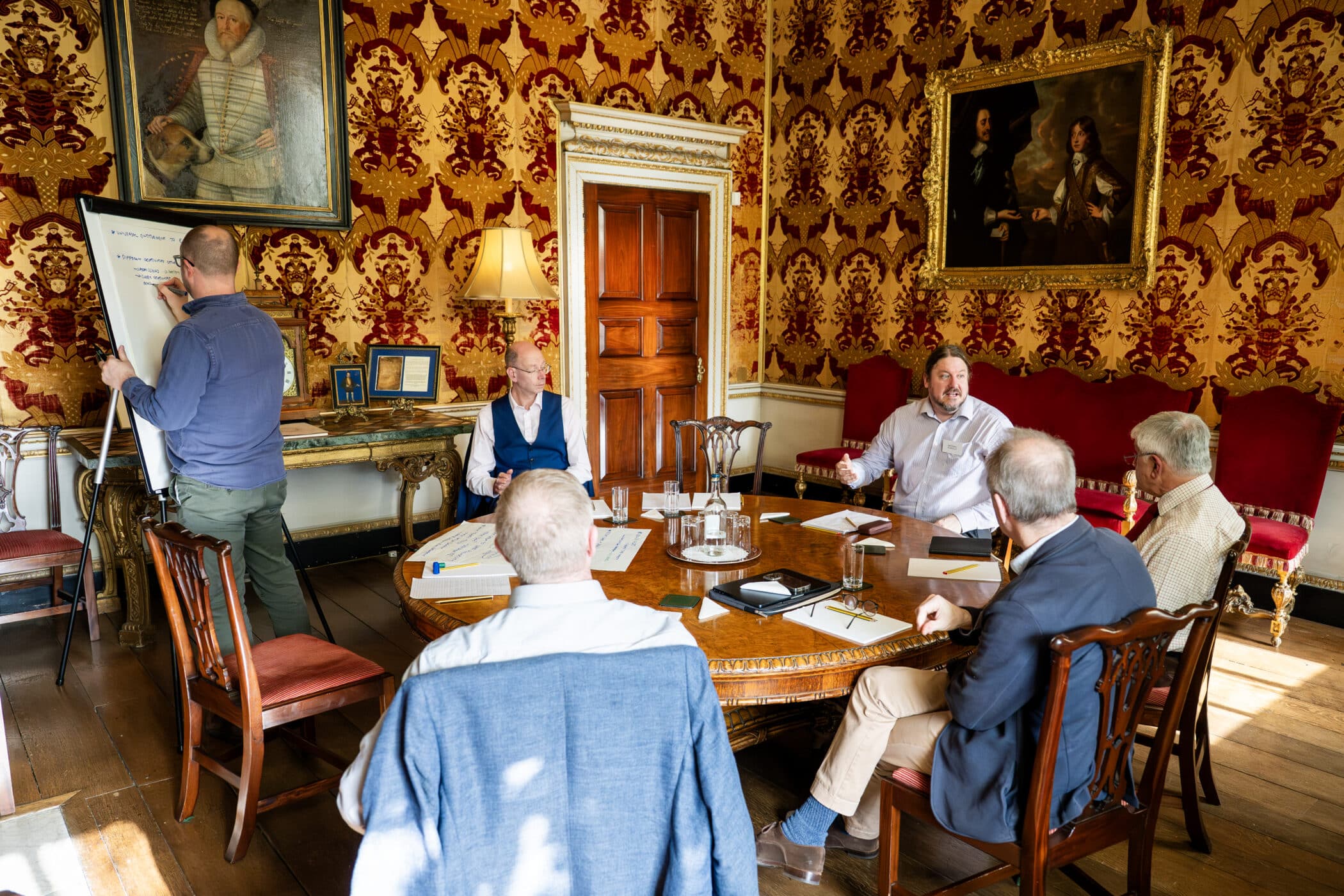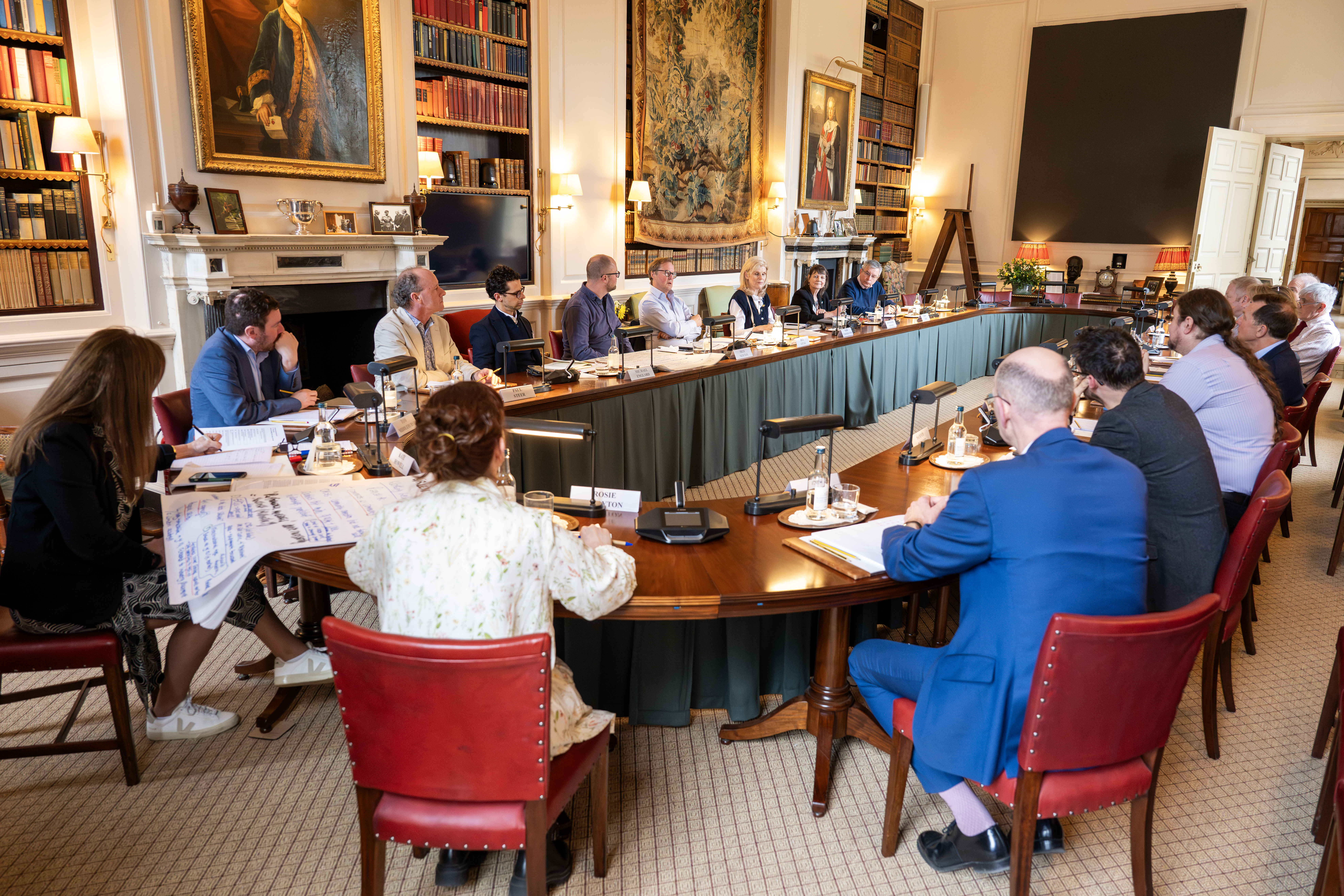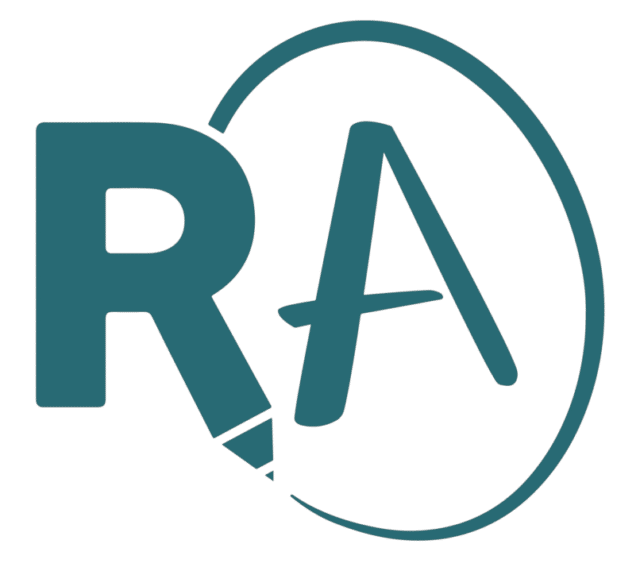Blog
HMC at Ditchley Park: Mapping the future of curriculum and assessment and building cross-sector consensus

Kate Howell
Director of Education, HMC
Read the blog
In the first week of March, HMC convened a meeting of education leaders from across the sector to discuss curriculum and assessment reform at Ditchley Park, a retreat in Oxfordshire.
The summit was planned to build on work led by Sarah Fletcher and the HMC Reform of Assessment Working Group, and to tie in with the Curriculum and Assessment Review commissioned by the government last Autumn, led by Professor Becky Francis. The CAR interim report was published this week, with a full report and recommendations due in Autumn 2025.
Over the last three years HMC has published its own report, Time to Talk (2021), delivered three Next Generation Assessment conferences in partnership, and submitted a cross-organisation response to the government’s CAR, written by members from the HMC Committees and the HMCj network.
At Ditchley Park, over a period of two days, through a mix of whole-group and break-out sessions, we worked quickly to set aside points of difference and identify areas of common ground. HMC was represented by Simon Hyde, Sarah Fletcher, Chris Stevens (Chair of the HMC Education Committee) and Kate Howell.
Included in the discussions were the Edge Foundation, the Chartered College of Teaching and Learning, Rethinking Assessment, the Foundation for Education Development (FED), ASCL, nasen (National Association for SEND), Heads of MATs, Skills Builder and Awarding Body organisations OCR, Pearson and IBO.
Through mixed group discussions we explored emerging themes in-depth, and considered how best we might use our collective influence and wisdom to support the change needed in the system, over the next ten years, to properly prepare young people for a bold, bright and rapidly-changing future.






Common themes emerged quickly:
- The need to re-examine our purpose in education and create a properly joined up approach from KS1 to KS5
- Explore independent-state school partnerships as a model for collaboration
- Strive to end the skills/knowledge debate – recognising that both are important
- Not all assessment needs to be ‘high stakes’
- Importance of a digital qualification
- Reduce curriculum content across subjects, whilst maintaining breadth
- Emphasise teacher training and CPD, promote collaborative working, reflective practice and action research
- Create regional educational communities to enable greater responsiveness to local needs and better sharing of resources
These themes align closely with HMC strategic objectives and education initiatives.
HMC aims to exemplify excellence in education, promote the discussion of national and international educational issues, and inform policy and public opinion about the independent sector. Supporting these aims, the HMC Education Team has set up 15 education networks which now connect over 3,000 senior leaders and practitioners across HMC schools and is currently working on developing an action research hub intended to support collaboration and reflective practice.
The education sector currently faces many significant issues: Rising rates of absenteeism, a teacher recruitment and retention crisis, pupils falling behind post-covid, increasing levels of anxiety and mental health issues to name a few.
The Becky Francis interim report states that the curriculum must evolve in response to global and technological advancements and affirms that integrating digital literacy, computing, and sustainability into the curriculum is essential to prepare students for future challenges. The report also acknowledges that while many pupils thrive under the existing curriculum, significant groups face barriers that hinder progress underscoring the importance of evolving the curriculum and assessment frameworks to be inclusive and responsive to societal and technological changes.
The Ditchley Group will meet again in two weeks’ time, this time online, to agree next steps which will centre around looking for the best ways to use our collective influence and wisdom to support the change needed.
The Education Team will keep members updated with developments.


